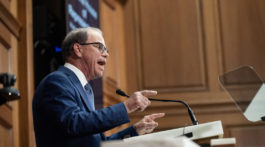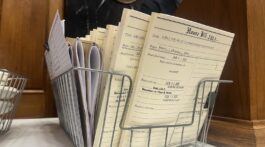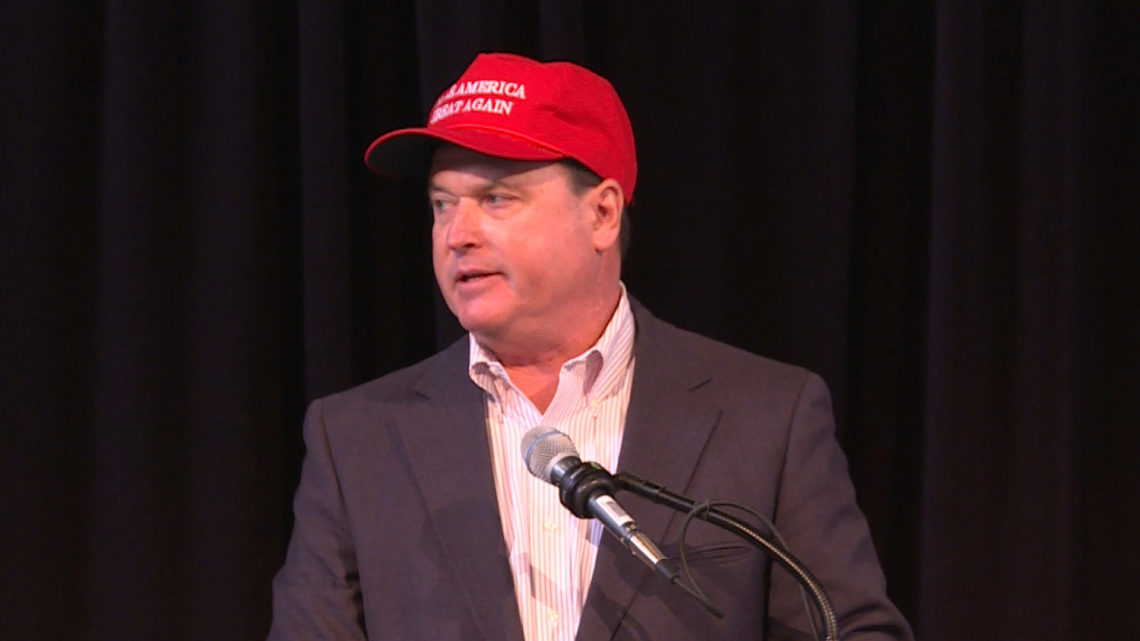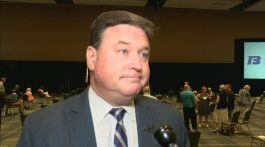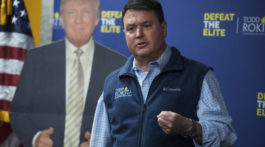By
Abdul-Hakim Shabazz, Esq.
“Curtis Hill has put himself ahead of his elected office and our values, Because of his bad judgment, not just on one night, but in a long pattern of inappropriate behavior. Personal responsibility is saying you’re sorry when you fail others taking ownership of mistakes. It is something to teach your children every day.”
Those are the words of Indiana Attorney General Todd Rokita from back in 2020. They were quoted in the Indianapolis Star, July 6, 2020.
Rokita was running for Secretary of State, ooops, Congress. No darn it, the U.S. Senate. My bad, he was running for Attorney General. He’s run for so many offices over his career that you can lose track sometimes, but I digress.
During the campaign, which occurred during the time that Hill was going through his controversy and being disciplined by the Courts for inappropriate behavior, Rokita argued that Republican delegates could not renominate HIll because if they did, Democrats would have a field day.
“This was no impeachment Pelosi clown show,” Rokita said. “This was the highest Court in our state, five impartial conservative judges condemning our attorney general’s behavior. This messaging against Hill will be so intense, we will not only lose the attorney general’s office, but will lose other elections including local races that we care about.”
Famous last words.
Rokita is in trouble, again, for guess what? I’ll take “running off at the mouth” for $500, Mr. Trebek.
We all know the story; Indiana Citizen has a really good rundown, which I recommend you read. Rokita is in trouble, again, with the Indiana Attorney Disciplinary Commission. Partly because, according to one complaint, he made false statements in his affidavit from the last complaint. How many complaints is that?
What makes this a little different is that one of the folks who filed the complaint used to work for the Commission, handling attorney-alleged misconduct. So she comes to the table loaded for bear.
In her grievance, according to Indiana Citizen, the complainant said she had worked for ten years in the area of professional responsibility, including two years as a staff attorney with the disciplinary commission. She said she couldn’t remember “in all that time” encountering a case where an attorney was so “unrepentant, defiant toward his ethical duties, the Commission, the Court, the legal profession, and the administration of justice.”
That can’t be good.
You see, the disciplinary commission is investigating whether Rokita violated Indiana Professional Conduct Rules 3.3(a)(1) and 8.4(c). The former rule prohibits a lawyer from knowingly making a false statement of fact to a tribunal – in this case, the Indiana Supreme Court. The latter defines professional misconduct for a lawyer as engaging in conduct involving dishonesty, fraud, deceit or misrepresentation.
This is one of the most important rules a lawyer must follow. And if you break it, you are in big trouble. Just this year, according to the Supreme Court’s annual report, the Court suspended one attorney without automatic reinstatement for, in addition to other violations, “making false statements and not cooperating during the Commission’s investigation. The Court noted this matter was the attorney’s third public discipline, and the attorney’s continuing noncompliance required more substantial discipline.”
And don’t forget, the Supreme Court decision was 3-2 regarding his last adventure, to give him a slap on the wrist. And the two dissenting justices thought Rokita should have a stricter penalty. Some people just love to poke the bear until the bear pokes back.
So what can happen to Rokita? One of the following…
1) permanent disbarment from the practice of law;
(2) suspension from the practice of law without automatic reinstatement;
(3) suspension from the practice of law for a fixed period of time, not to exceed 180 days, with provision for automatic reinstatement after the expiration of the fixed period, upon any conditions as the Supreme Court may specify in the order of suspension;
(4) a public reprimand;
(5) a private reprimand; or
(6) a private administrative admonition.
If the Court finds Rokita violated the Rule of Professional Conduct and they exercise options #1 or #2, he would have to step down as Attorney General because under state law, IC 4-6-1-3
specifically, to hold the job, you must be duly licensed to practice law in Indiana, and if he is disbarred, well, you get the picture.
And there’s a good chance that could happen. Remember, the person who filed that complaint has a decade in the realm of professional responsibility, including two years as a staff attorney with the disciplinary commission. Did we mention that?
When we ran into Governor Holcomb Friday at the Nieshalla swearing-in ceremony, we asked (in our LNG capacity) if he had thought about or has any concerns about potentially having to make another statewide appointment next year regarding the Attorney General; his response was, “no comment”.
A number of folks are looking at that potential open spot. Some are looking at running if Rokita is disbarred; others are looking at a straight-up challenge, using the same line of attack Rokita used against Curtis Hill back in the 2020 Republican State Convention.
Now, this is the part where Rokita’s troglodytes say we are infringing on his rights to free speech and are interfering with an election. Where have I heard this before? My response to them is quite simple: the law is pretty clear: only licensed attorneys can be Attorney General, and if he loses his law license, he can’t hold the job. Secondly, if Rokita loses his law license, he will have no one to blame because all this could have been avoided if he had just kept his mouth shut.
This isn’t hard to do, folks. Well, maybe it is if your name is Theodore Rokits.
—————————————————
Abdul-Hakim is an attorney licensed in Illinois and Indiana. He is also the editor and publisher of Indy Politics. And in the interest of full disclosure, he filed a lawsuit back in 2022 after being denied access to his news conferences at the Statehouse.


